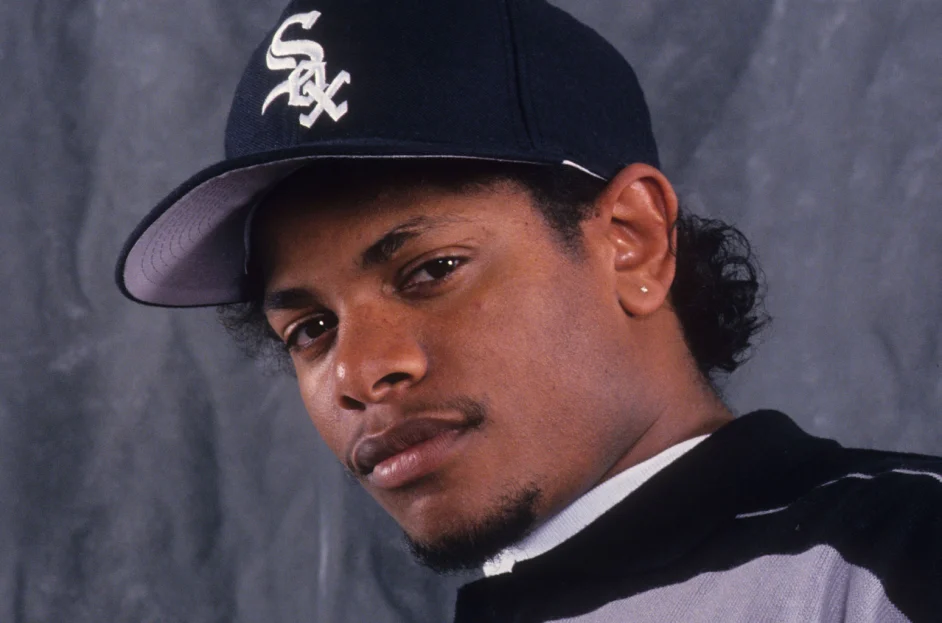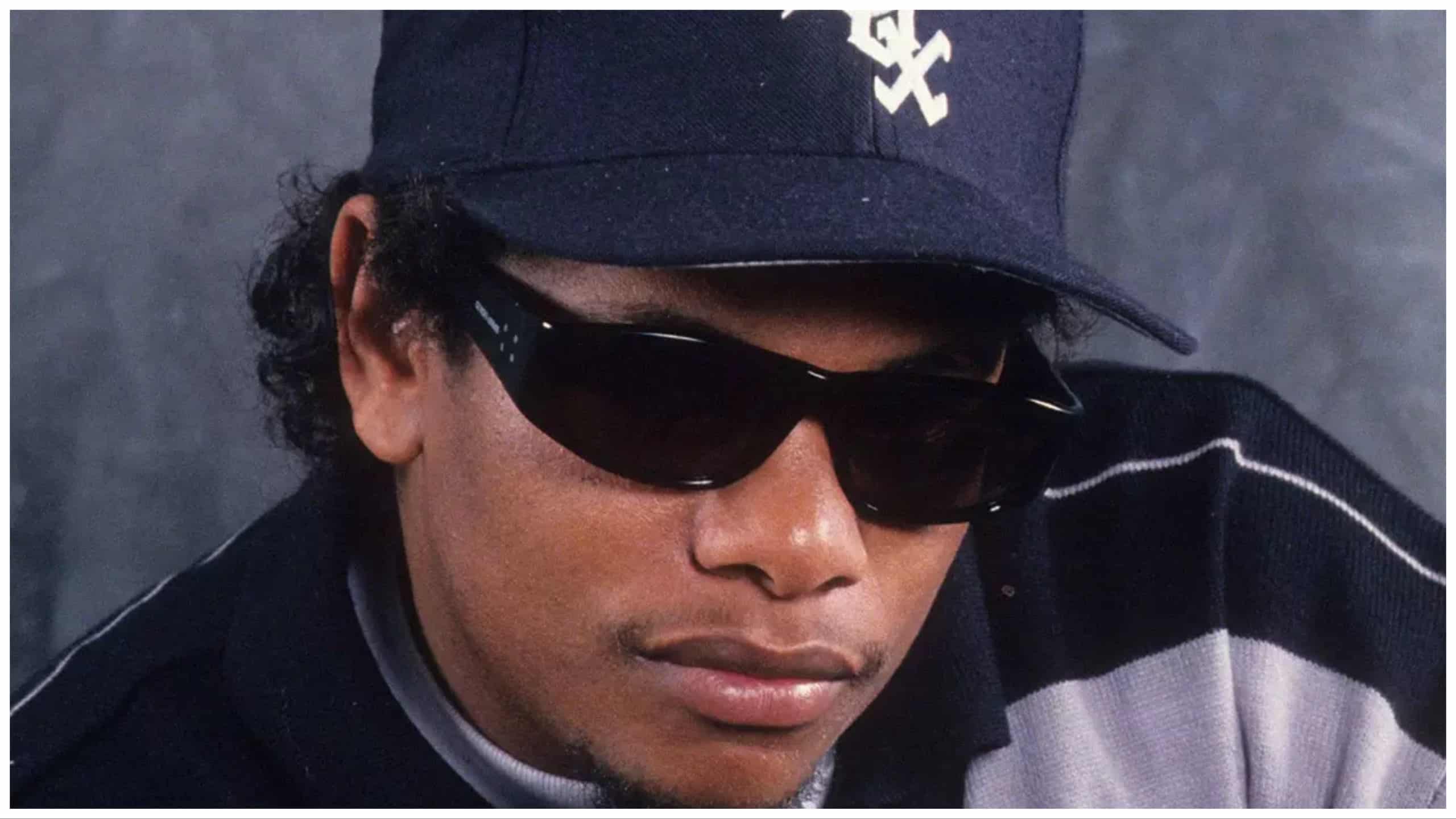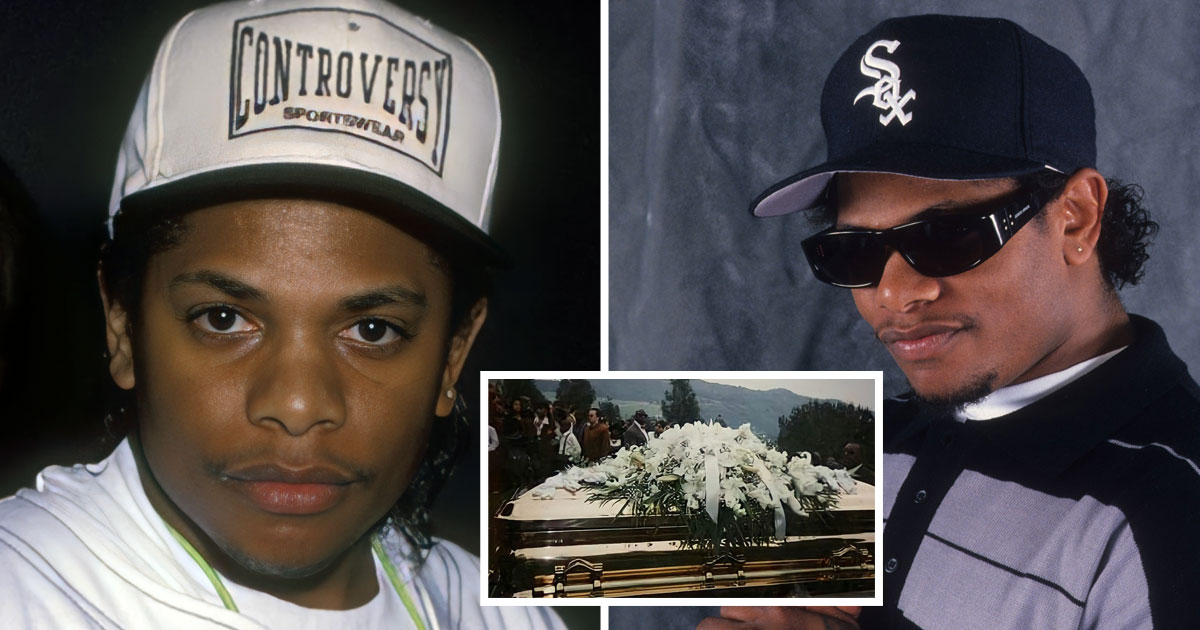Table of Contents
- Introduction
- Eazy-E's Life Story - A Look Back
- Personal Details and Bio Data
- How Did Eazy-E Die - The Sudden Illness
- The Diagnosis and Final Days
- How Did Eazy-E Die - Whispers and Theories
- The Group's Journey and Impact
- How Did Eazy-E Die - A Legacy Remembered
- What Did Eazy-E's Passing Teach Us?
The hip-hop world, and honestly, so many people beyond it, felt a real shock when news broke about Eazy-E's passing. It was a sudden, rather unexpected moment that left a lot of folks wondering exactly what happened. This very sad event, which took place in 1995, really brought a prominent figure from the music scene to a halt, leaving behind a big mark on culture and plenty of questions about his final days.
He was a man who, you know, helped shape a whole sound, a voice for a particular kind of experience, and then, quite abruptly, he was gone. His story, in some respects, is one of rapid rise and then, unfortunately, a very quick departure from the world. It’s a situation that, even now, many years later, still prompts conversations and a desire to understand the sequence of events that led to his death.
For a lot of us, the details surrounding his passing have always been a bit fuzzy, perhaps shrouded in rumor or just the sheer speed of it all. This discussion aims to bring together the pieces of that story, exploring the circumstances of his illness and the impact it had, all to give a clearer picture of how did Eazy-E die and what that meant for everyone who admired him.
Eazy-E's Life Story - A Look Back
Eazy-E, whose real name was Eric Lynn Wright, came into the world in Compton, California. He was, by all accounts, a key player in putting West Coast hip-hop on the map, especially through his involvement with a music collective that truly changed things. He was, you know, a bit of a force, helping to craft sounds and lyrics that spoke to a lot of people, often about the harder realities of life in his neighborhood. His journey from the streets of Compton to becoming a well-known figure in music is quite a tale, actually, showing a lot of grit and a clear vision for what he wanted to do.
He was instrumental in forming a group that, in a way, became famous for its raw, unfiltered style. This collective, which also featured people like Arabian Prince, Dr. Dre, DJ Yella, and MC Ren, really broke new ground. They put out a collection of songs called "N.W.A. and the Posse" back on November 6, 1987. That recording, by the way, went on to get a gold certification in the United States, which is pretty impressive for a first big outing. It featured some tracks that had been released earlier as individual songs on a different record label, Macola Records, so, you know, they were building on some existing work.
His public image was, in some respects, quite striking. He was often seen at big events, like walking the red carpet, and made various appearances that kept him in the public eye. These moments, honestly, gave people a chance to see him as more than just a voice on a track, but as a person who was very much a part of the cultural landscape. He had a way of carrying himself that was, you know, very much his own, leaving a lasting impression on those who watched him.
Personal Details and Bio Data
Here's a quick look at some personal aspects of Eazy-E's life:
| Full Name | Eric Lynn Wright |
| Born | Compton, California |
| Died | March 26, 1995 |
| Age at Passing | 31 years old |
| Children | Seven, with six different women |
| Married | Yes, at the time of his passing |
| Known Children (with wife) | Dominick and Daijah |
| Initial Career Location | Compton, then possibly Long Beach or another part of Los Angeles |
How Did Eazy-E Die - The Sudden Illness
The events leading up to Eazy-E's passing were, to say the least, very quick and quite startling for everyone involved. He went to the hospital in February 1995, thinking he had a fairly common breathing problem, something like asthma, which many people deal with. It was, you know, a situation where he probably expected to get some treatment and then head back home, maybe with some new medicine or advice. The idea that it could be something much more serious was, I imagine, very far from his mind, and certainly from the minds of those close to him.
But what happened next was a complete and utter shock. Instead of a diagnosis for a respiratory issue, he was told he had AIDS. This was, honestly, a truly devastating piece of news, delivered only a couple of weeks before he actually passed away. The speed of it all, from feeling unwell to receiving such a grave diagnosis and then his eventual death, was incredibly fast. It left, you know, so many people reeling, trying to make sense of how someone so prominent and seemingly vibrant could be taken so quickly by an illness that, at the time, still carried a lot of fear and misunderstanding.
The revelation of his condition, in such a short span of time before his death, naturally stirred up a lot of talk. People were, in a way, trying to process not just the loss of a music icon, but also the startling nature of his illness. This sudden turn of events, it's almost, created a space where questions began to form, questions about the infection itself and what it might mean for his lasting impact on the world. The whole situation was, pretty much, a whirlwind of emotion and confusion for those who followed his career.
The Diagnosis and Final Days
When Eazy-E received his diagnosis in February 1995, it marked the beginning of a very short, very difficult period. His condition, as you can imagine, quickly worsened. The public announcement of his illness was, to be honest, a huge moment, sending ripples through the music community and beyond. It was a time when such a diagnosis was often kept private, so his openness about it, even in the face of such a serious situation, was, you know, quite something. This news, which came out just a short time before his death, really highlighted the severe nature of what he was facing.
During these final days, there was, interestingly enough, a moment of reconciliation. It's often talked about that Dr. Dre and Eazy-E, who had, in some respects, gone their separate ways with some public disagreements, managed to talk things out. This conversation happened when Eazy-E was, as they say, on his deathbed. It’s a detail that, in a way, offers a glimmer of peace amidst the sadness, showing that even in the most difficult times, old wounds can sometimes begin to heal. This was, in fact, a very personal and poignant moment for both of them, and for fans who had hoped for a mending of their friendship.
He passed away on March 26, 1995, at the age of 31. His passing was, really, due to the severe health problems that came with AIDS. The swiftness of his decline, from thinking he had asthma to being diagnosed with a life-threatening illness and then dying just a few weeks later, really underlined the serious and often quick progression of the disease at that time. It was a very stark reminder of the challenges people faced with this illness, and how quickly it could take someone's life.
How Did Eazy-E Die - Whispers and Theories
The suddenness of Eazy-E's passing, especially after such a quick diagnosis, naturally led to a lot of speculation and, you know, some rather intense discussions. People began to talk about conspiracy theories, trying to find explanations beyond the immediate medical facts. These theories often centered around the idea of his infection being, in some way, not accidental, and also touched upon his lasting contribution to music. It’s almost as if the shock of his death made people search for more complex reasons, something beyond just the illness itself, to help them cope with the loss.
One of the more persistent rumors that circulated was the idea that Suge Knight, another prominent figure in the music scene, might have been involved in his death. There were accusations, actually, from Eazy-E's own son, suggesting that Suge Knight was somehow responsible for his father's passing. This particular theory even went as far as to suggest that Suge Knight might have paid someone to infect Eazy-E. It’s a very serious claim that, honestly, added a lot of dramatic tension to the story surrounding his death, and it kept the conversation going for a long time.
However, it's important to remember that these are, you know, just theories. The web pages and discussions that explore these ideas often work to debunk the notion that Suge Knight paid someone to do this. There's really no concrete proof or widely accepted evidence to support these claims. Also, regarding the question of whether Eazy-E might have infected anyone else, the truth is, no one is really sure. If someone were to have been infected by him, they haven't come forward or said anything publicly about it. So, while the rumors persist, the facts remain centered on his medical diagnosis.
The Group's Journey and Impact
Eazy-E's contribution to music, particularly with the group N.W.A., was, in a way, truly groundbreaking. The original members included Arabian Prince, Dr. Dre, DJ Yella, and MC Ren, and together, they created a sound that was, you know, very much their own. Their work, especially that early collection of songs, truly captured a moment in time and gave a voice to experiences that weren't always heard in mainstream music. They were, in essence, pushing boundaries and challenging conventions with their lyrics and their sound.
The collective's first big release, "N.W.A. and the Posse," which came out in November 1987, was a significant step. This album, as a matter of fact, was certified gold in the United States, showing that their music was reaching a lot of listeners. It included songs that had been put out as individual tracks before, on a different record label called Macola Records. This early material, basically, laid the groundwork for what would become a very influential sound in hip-hop, shaping the direction of music for years to come. Their style was, pretty much, unlike anything else at the time.
The group's impact went far beyond just selling records; they created a whole new kind of conversation. They were, in some respects, called "the world's most dangerous group," a label that, you know, really captured the raw, confrontational nature of their music. This title, whether given by critics or embraced by the group, highlighted their willingness to tackle tough subjects and challenge the status quo. Their legacy is, actually, about more than just their songs; it's about the cultural shift they helped bring about, changing how people thought about music and expression.
How Did Eazy-E Die - A Legacy Remembered
Even after his passing, Eazy-E's influence and story continue to be a big part of discussions about hip-hop. People often look back at his life, his work, and the various disagreements he was involved in, especially those leading up to his death. His career was, you know, a mix of incredible success and, honestly, quite a bit of controversy, which is often the case with artists who challenge the norm. The web pages and articles that talk about him often explore these different aspects, trying to piece together the full picture of his time in the spotlight.
His story is, in a way, a reminder of the personal side of public figures. He was a young man, only 31 when he passed, and he had a rather large family, with seven children from six different women. He was also married, and with his wife, he had two children, Dominick and Daijah. These personal details, you know, give a glimpse into the life he led outside of the music studio and the stage. It shows that behind the public persona, there was a person with a very real and, in some respects, complex family life, which adds another layer to his overall story.
The conversations about Eazy-E often come back to the questions surrounding his death, and how those rumors and theories, you know, became part of his overall narrative. Despite the sadness of his passing, his music and his presence continue to resonate. His ability to connect with people through his raw storytelling and distinctive voice meant that he left a mark that, arguably, still influences artists and fans today. His story is, pretty much, a significant chapter in the history of a whole music style.
What Did Eazy-E's Passing Teach Us?
Eazy-E's passing, at such a young age and under such sudden circumstances, really brought a lot of things into focus for many people. It was a very stark reminder of the realities of certain health conditions at the time, and the speed with which they could affect someone's life. His openness about his illness, even though it was a very personal and difficult thing to share, in a way, contributed to a broader conversation that was very much needed. It showed, you know, that even public figures face very real and serious health challenges, just like anyone else.
Beyond the personal tragedy, his story, honestly, highlights the intense pressures and often difficult paths that some artists walk. His life was, in some respects, a whirlwind of creativity, success, and, you know, also conflict. The discussions about his career, his announcements, and the controversies that surrounded his death all combine to paint a picture of a life lived very much in the public eye, with all the scrutiny that comes with it. It’s a complex narrative that, perhaps, offers lessons about fame, personal choices, and the lasting impact of one's work.
Ultimately, Eazy-E's journey, from his beginnings in Compton to his status as a music pioneer, and then to his untimely death, serves as a powerful part of music history. His legacy is, really, about more than just the circumstances of how did Eazy-E die; it's about the music he made, the cultural shifts he helped create, and the lasting impression he left on countless fans. His story, in a way, continues to be explored and discussed, keeping his memory alive and his contributions acknowledged by new generations of listeners and artists alike.
Related Resources:
Detail Author:
- Name : Dr. Arvel Kautzer
- Username : qbogisich
- Email : kurtis23@yahoo.com
- Birthdate : 1987-04-14
- Address : 6457 Berge Well Apt. 439 Haydenbury, UT 13528-4971
- Phone : 480-621-8539
- Company : Sauer PLC
- Job : Nursing Aide
- Bio : Aut recusandae laboriosam libero quia atque iusto laudantium. Ut quia at minima facilis et omnis id. Voluptate nihil qui incidunt qui et. Rem adipisci quisquam est quaerat fugiat deleniti.
Socials
instagram:
- url : https://instagram.com/delpha6730
- username : delpha6730
- bio : Ut est velit et. Iusto autem voluptate cupiditate dolor voluptate rerum explicabo ea.
- followers : 1683
- following : 2539
twitter:
- url : https://twitter.com/delpha1947
- username : delpha1947
- bio : Aut pariatur placeat veniam soluta non nam. A aut saepe ad officia vitae et corporis voluptatem. Quo eos omnis assumenda sunt commodi harum.
- followers : 3837
- following : 2259


